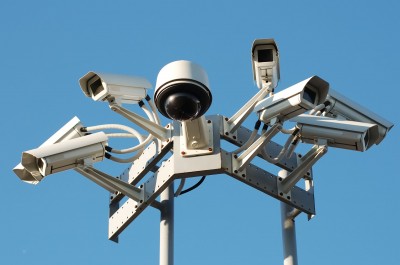I always feel like somebody’s watching me

January 23, 2018
Surfing the internet may not be all that confidential after Congress renewed the Surveillance Act.
Congress recently renewed a law that allows the NSA to continue surveillance on foreign communication without a warrant.
The new bill renews section 702 of the Foreign Intelligence Surveillance Act.
Its renewal grants the government access “to target the communications of non-US persons outside the United States for foreign intelligence purposes.”
Many college students had never heard of the reoccurring surveillance act.
“I’ve always felt like we were being watched, but I didn’t know there was a law that gave them permission,” senior risk management and insurance major, Skylar Sterling said.
The concern lies within the present political climate and the history of the NSA being exposed for spying on domestic communication.
Former Central Intelligence Agency employee, Edward Snowden, leaked private NSA documents in 2013 that revealed global surveillance programs ran by the government.
Snowden is known as a whistle blower.
The exposure of confidential documents created a wave of distrust for the government after it was revealed that the NSA spies on domestic communication.
He was charged with two counts of violating the Espionage Act and theft of government property.
Violating the Espionage Act normally holds long sentences including life in prison.
The theft of government property warrants up to 10 years in prison.
Snowden now lives in an undisclosed location after fleeing the U.S. in fear of the government retaliating.
The NSA taps into domestic communication through the internet, tech companies, and public buildings.
After learning about the powers of the NSA, some students felt uncomfortable by the invasion of privacy.
“I feel exposed knowing that my every move and thoughts are literally being watched,” senior kinesiology major, Eryn Robertson said.
The renewal of the Surveillance Act revisits the Fourth and Fifth Amendment.
The Fourth Amendment protects privacy against unreasonable searches.
The Surveillance Act allows the NSA to access personal information without a warrant.
After being exposed for searching domestic communication that didn’t pose threats of terrorism, some can question if the present Administration will use it to further create discriminatory policies towards critics, immigrants, Muslims and people of color,” according to the American Civil Liberties Union legal counsel.
The Fifth Amendment protects against self-incrimination which protects the privacy of personal information.
The NSA can use private information to incriminate someone and it could be justified under the new act.
The purpose of the Surveillance Act is to tap foreign communication to detect foreign terrorism that posed threats to the U.S.
In 2009, the NSA stopped a terrorist that planned to bomb the New York subway system with backpacks.
They were able to locate him in Denver, Colorado and follow him to New York City where they obtained search warrant through their PRISM program.
The PRISM surveillance program collects internet data through popular Internet services like Google, Yahoo and Microsoft.
PRISM has been labeled controversial because the program collects data from everyone and not just suspected terrorists.
“I don’t mind the law if it protects us,” senior construction management major, Cameron Davis said.
“Privacy shouldn’t be an issue if you aren’t a terrorist,” Davis continued.
Hours before the House approved the act, President Trump tweets seemingly didn’t agree with the renewal because it was “so badly surveil and abuse the Trump Campaign by the previous administration and others.”
President Trump falsely accused former President Barack Obama of using the FISA Act to spy on his campaign during the election.
He later changed his tweeted in support of the Surveillance Act.
“I have personally directed the fix to the unmasking process since taking office and today’s vote is about foreign surveillance of foreign bad guys on foreign land,” President Trump tweeted.
Louisiana’s Surveillance Act stops the recording or disclosure of any oral or telephonic communication by any means.
The Surveillance Act will not be permanent and will be reevaluated again in six years.


